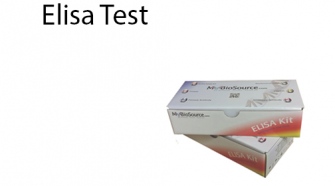Welcome to Home Loans 101. Purchasing a home is never something to get into lightly. You will most likely be taking out a Home Loan to be able to afford the house, and then paying off the loan over time. To help you choose between the multitude of Home Loan options at your disposal, here are some common Home Loan FAQs.
- What Is The Down Payment On The Loan?
One of the firstthings to do when taking out a Home Loan is figuring out what the down payment is. Your financier will usually give you a loan for 90% of the property, and you’ll have to put in the remaining amount. The down payment depends on factors like the type of property you’re investing in, the location, your age, and your income.
- Do You Have Enough Financial Stability To Afford The EMI?
You will be paying off the loan over time in Equated Monthly Installments (EMIs). The EMI is based on your income and dependants. This rate is usually between 45% to 35% of your income. You will need to assess your financial situation and ensure that you will be able to keep up the the EMI payments.
If you default on a loan, your credit rating takes a hit, and this makes it harder for you to take out loans in the future. If you’re not completely sure that you’ll be able to keep up with the monthly EMI payments, then you should put off taking the loan till your financial situation improves, or negotiate with your financier for better EMI options and a longer tenure.
- What Is The Date Of The EMI Payments?
When deciding the date at which you’ll pay the EMI every month, be sure to pick one which ensures that you’ll be able to make the payments with ease. Most banks don’t allow you to change this date once it’s been set, so this is one of the most important Home Loan questions you need to ask yourself.
- Is The Interest Rate Fixed Or Floating?
A fixed interest rate is the best option if the interest rates are low when you’re taking out the loan. Even if interest rates change while you’re paying off the loan, your rate will remain the same.
A floating interest rate is one that can be changed by the bank based on a reference. This is a good option if you’re sure that interest rates will fall in the future. When your interest rates fall, your EMI will be lowered, and you’ll end up paying less every month till the rates rise again.
- What Are The Pre-Payment Options And Penalties?
If your income increases significantly, you might want to pay off the loan sooner, and maybe even in a lump sum. Some banks might put a cap on the pre-payment, and others might impose penalties and charges. This is something you need to figure out before you take your Home Loan.
- What Are The Other Charges?
Banks charge administrative, service, and processing fees when you’re taking out the loan. You should be taking this into consideration when you’re applying. Approach your bank, and they may waive these fees entirely and might even be willing to reduce your interest rate if you have a good credit history.
- Can Your Fixed Deposits And Insurance Policies Be Considered As Collateral?
Yes, most banks will allow you to put up existing insurance policies or fixed deposits as collateral for the loan. This is something that you will need to actively approach the bank about though, since they might not inform you that this is an option.
- What Are My Options In Case I Run Into Financial Difficulty?
Ask your bank about refinancing options before you seal the deal on the loan. In case you run into financial troubles and find it hard to repay the loan, you need to know what your options are. Some banks will let you transfer the loan to another establishment that offers lower interest rates and you might also be able to negotiate an extension on the tenure of the loan.
These are somequestions that you need to be aware of before you finalise your Home Loan. Always explore all your options before you choose, so that you find the best lender for you. Bajaj Finserv, for example, offers some of the best deals on Home Loans, along with a number of handy tools to help you calculate EMIs and pre-payment options.













